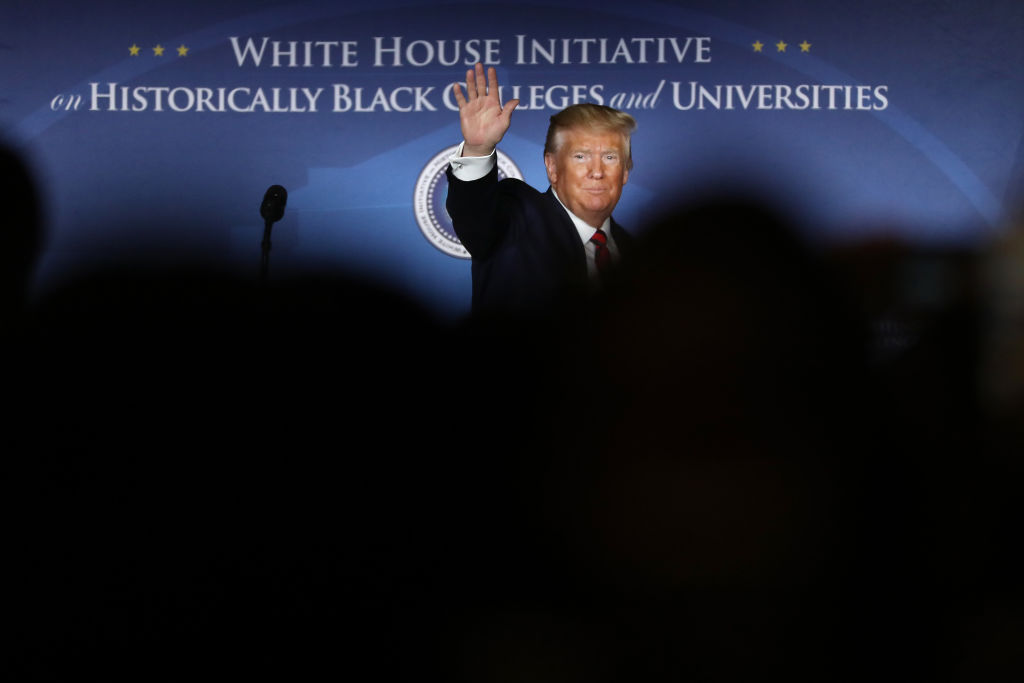President Trump’s Defense of HBCUs and International Students: A Closer Look
In a recent interview, President Donald Trump drew attention with his defense of H-1B visas and the role of international students, particularly highlighting historically Black colleges and universities (HBCUs). During his conversation with Fox News’ Laura Ingraham, the president made a provocative assertion that international students from China play a vital role in keeping HBCUs financially afloat.
The President’s Claims
Trump stated, “We do have a lot of people coming in from China… If we were to cut that in half… you would have half the colleges in the United States go out of business.” His comments raised eyebrows, especially his assertion that HBCUs would be among those institutions most adversely affected by a reduction in international student enrollment.
The Reality of HBCU Enrollment
The reality, however, is markedly different from the president’s claim. Data from the Institute of Educational Sciences reveals that international students only make up about 2.5% of HBCU enrollments, with the majority hailing from Africa and the Caribbean rather than China. This statistic begs the question: why did Trump specifically mention HBCUs in this context?
It’s essential to acknowledge that while international students do contribute to the diversity and academic richness of HBCUs, their numbers are insufficient to substantiate the claim that these institutions would face shutdowns without them. HBCUs have a deep-rooted mission to serve Black students and have historically flourished as vital educational institutions in the U.S.
A Defense of International Workers
In his interview, Trump also appeared to defend the necessity of international workers, particularly in the face of prior restrictions on the H-1B visa program. These visas are granted to foreign-born workers in specific industries, particularly in tech and healthcare. The White House had recently issued restrictions on these visas, attributing them to the “abuse” of the program, which allegedly made it more challenging for American students to secure job opportunities.
Trump’s nuanced stance seemed to try to reconcile his past anti-immigration sentiments with the reality that international talent is necessary for the U.S. workforce. “You don’t have certain talents and people have to learn,” he argued, countering claims that sufficient domestic talent exists for specialized jobs.
Reactions from Political Circles
The president’s comments have prompted backlash from his political base, predominantly characterized by an “America First” perspective that often champions restrictive immigration policies. Notably, Rep. Marjorie Taylor Greene has vocally opposed H-1B visas, circulating a proposal aimed at entirely eliminating the program. Greene’s rhetoric underscores a growing divide within the Republican Party regarding immigration and its economic implications.
In the interview, Ingraham pressed Trump on whether American workers could fill the roles typically occupied by international hires, dubbing those individuals as “plenty of talented people” already in the U.S. Trump’s response emphasized the specialized skills required for these positions, insisting that one cannot simply transition unemployed individuals into highly technical roles without adequate training.
Educational and Economic Implications
The debate surrounding H-1B visas and international students is not just a political issue; it resonates deeply within educational and economic spheres. HBCUs, despite their limited influx of international students, serve a critical role in producing graduates who contribute to various industries across the nation. Their sustainability, therefore, hinges on multiple factors, including state funding, alumni support, and local community engagement—not merely international student enrollment.
Moreover, international students often bring diverse perspectives and innovation to campuses, contributing to a cosmopolitan educational environment. As global interconnectedness becomes increasingly important, nurturing such an ecosystem is vital for institutions aiming to prepare students for a dynamic workforce.
Conclusion
While Trump’s comments bring to light the ongoing discussions about immigration and its impact on the educational landscape, they also highlight the need for a nuanced understanding of how various factors contribute to the health and survival of HBCUs and similar institutions. As these conversations continue, the focus should remain on fostering a robust educational system that not only serves domestic needs but also recognizes the value of global talent.



